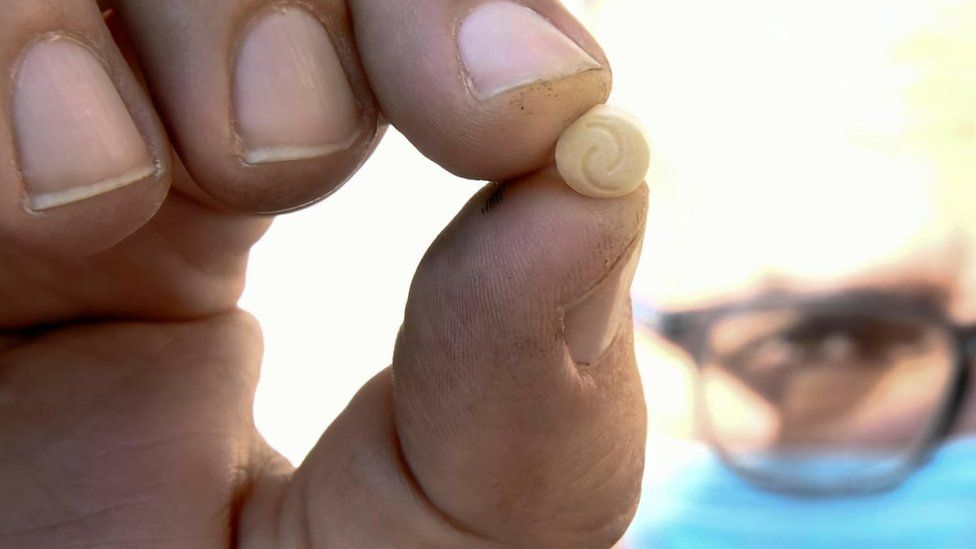A joint investigation by BBC News Arabic and the investigative journalism network OCCRP has uncovered fresh direct connections between the multibillion dollar Captagon drug trade, prominent members of the Syrian Armed Forces, and President Bashar al-Assad's family.
The Middle East has recently been plagued by captagon, a highly addictive drug that is similar to amphetamine. The BBC has been filming with the Jordanian and Lebanese armies over the past year to document their campaigns to prevent Captagon from being smuggled across the borders into their countries from Syria.
These days, the drug can be found in Asia, Africa, and Europe.
On a list of individuals, including two of President Assad's cousins, who were allegedly involved in the Captagon trade, Britain, the United States, and the European Union imposed sanctions in March. However, the BBC's investigation into Syria's narco-state has uncovered evidence suggesting that other senior Syrian officials, in addition to those already on that list, were also involved.
The BBC's request for comment from the government of Syria has gone unanswered. It has previously refuted any involvement in the drug trade, though.
Raji Falhout, the head of a militia that was allied with the regime, was overthrown by a rival group in July 2022 in the southern Syrian city of Suweida. Along with Mr. Falhout's Syrian military identification card and an unlocked phone, they also discovered bags of what appeared to be Captagon pills ready for distribution and a device that could be used to press pills.
After being granted exclusive access to the phone, the BBC discovered a string of messages between Mr. Falhout and a Lebanese contact he called "Abu Hamza," in which they discussed buying the pill-pressing machine. A conversation between Mr. Falhout and Abu Hamza about moving the equipment from Lebanon to Syria can be found on the mobile phone from August 2021.
The BBC was able to determine Hussein Riad al-Faytrouni's real name from the phone number used to identify Abu Hamza. He is connected to Hezbollah, the militant organization and political party in Lebanon that is closely associated with the Syrian government, local journalists have informed us.
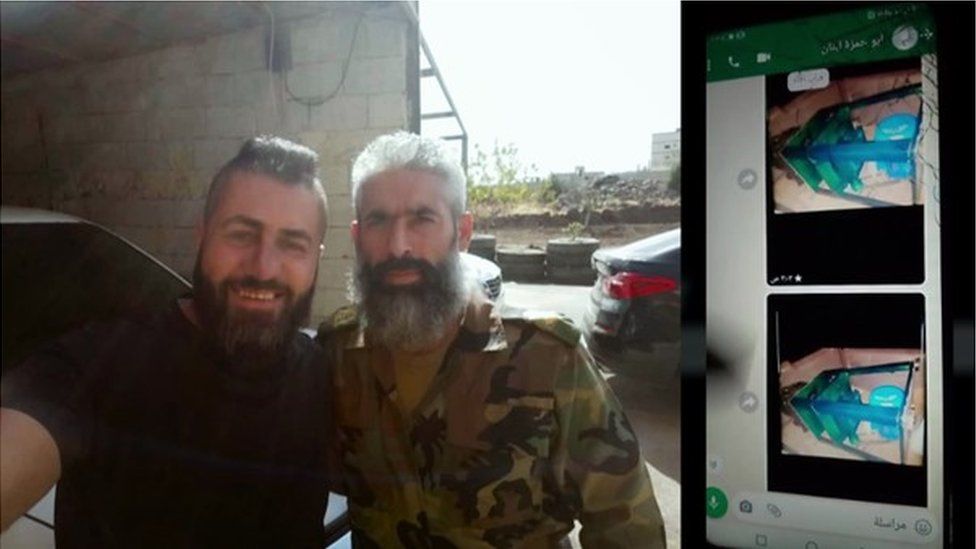
Syria is said to be home to Hezbollah fighters, who have reportedly played a significant role in aiding the Syrian government in turning the tide of the civil war. They have long been charged with involvement in drug trafficking but have consistently refuted the allegations.
A journalist from the Suweida region of Syria explained to us from exile: "Hezbollah is involved, but is very careful not to have its members playing key roles in transporting and smuggling the goods. ".
In response to the BBC's request for comment regarding Mr. Faytrouni, Hezbollah remained silent. Previous to now, they have denied any involvement in the creation and smuggling of Captagon. Both Mr. Falhout and Mr. Faytrouni were unavailable for comment.
Hezbollah appeared in our investigation more than once after that.
The BBC was granted exclusive access to the Syrian Armed Forces in Aleppo, which is under government control, after months of security preparation.
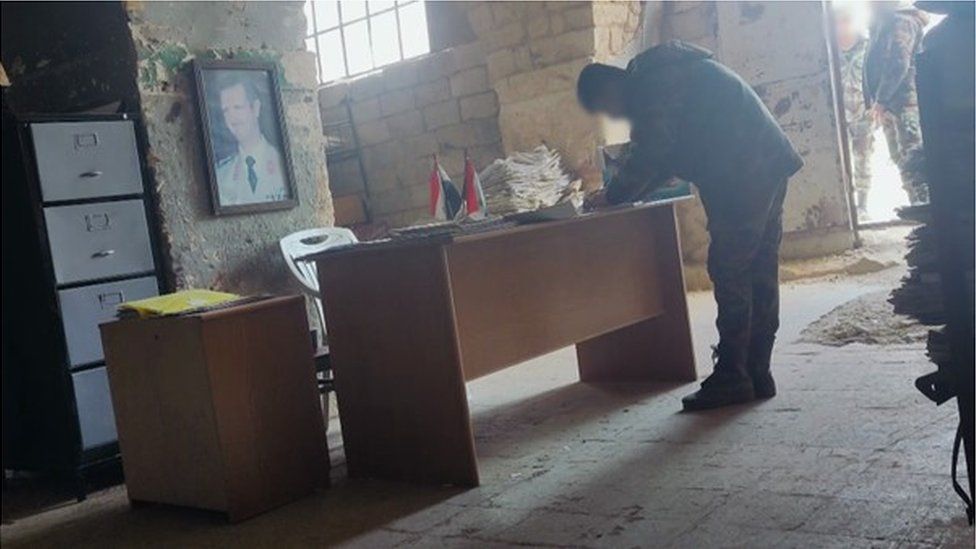
Under the condition of anonymity, a soldier told us that his fellow soldiers received monthly salaries of less than 150,000 Syrian pounds ($47; £47).
He claimed that many of them had turned to selling drugs in their community to supplement their incomes, and that this had become commonplace for them.
He was asked to explain his unit's function in the neighborhood Captagon trade.
He said, "We weren't allowed to go to the factory. "They would choose a location for the meeting, and we would purchase from Hezbollah. We would take delivery of the supplies and work with the Fourth Division to coordinate our movement. ".
The Syrian army's Fourth Division is an elite division tasked with defending the government from both internal and external dangers. Maher al-Assad, the president of Assad's younger brother, has been officially in charge of it since 2018.
Maher al-Assad is the target of Western sanctions because he brutally suppressed protesters during the Syrian civil war and has also been connected to the alleged use of chemical weapons.
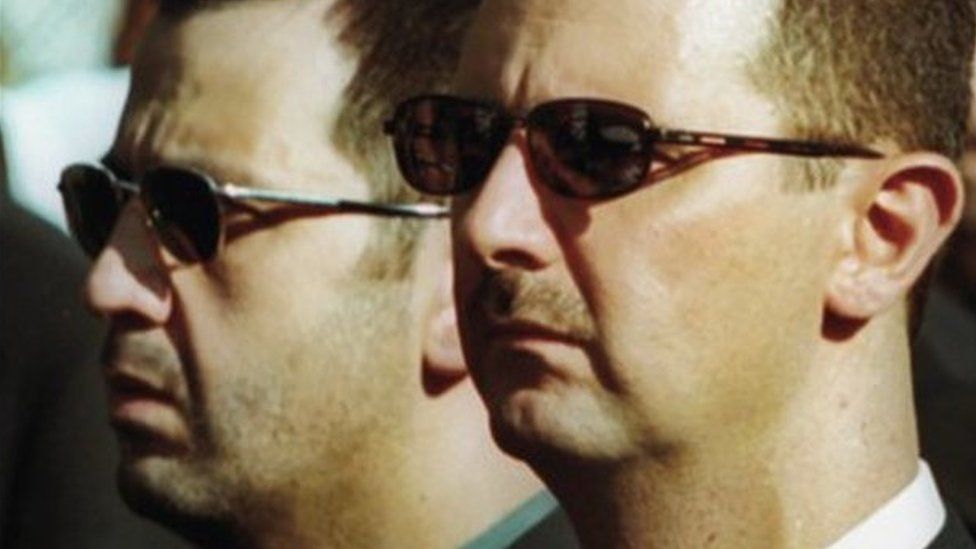
Additionally, it is claimed that he oversaw the Fourth Division's development into a significant economic force.
We had a conversation with a former Syrian army officer who had resigned. He explained to us: "Many Fourth Division members have turned to smuggling due to the difficult financial circumstances that the officers and ranks are going through during the Syrian war.
As the only body able to pass through checkpoints in Syria, the Fourth Division's officers' cars began to be used to transport extremists, weapons, and drugs. ".
Due to sanctions and the war, Syria's economy is currently on the verge of disintegrating. It is becoming more and more dependent, according to analysts, on the profitable little Captagon pill.
The volume of the revenues. dwarfs the Syrian government's budget, Joel Rayburn, a former US special representative, told the BBC. The Assad regime wouldn't be able to survive if Captagon revenues were stopped or significantly disrupted, in my opinion. " .
The BBC has discovered additional proof of the Assad family's involvement in the enterprise.
Hassan Daqqou, a well-known businessman who the Lebanese press dubbed the "King of Captagon," was put on trial in Lebanon in 2021. Following the seizure of a sizable shipment of the drug in Malaysia, he was found guilty of trafficking in captagon.
The shipment, which contained almost 100 million pills, was headed for Saudi Arabia and was one of the largest drug busts in history. Its street value was estimated to be between $1 billion and $2 billion (£790 million to £1 point 6 billion). .
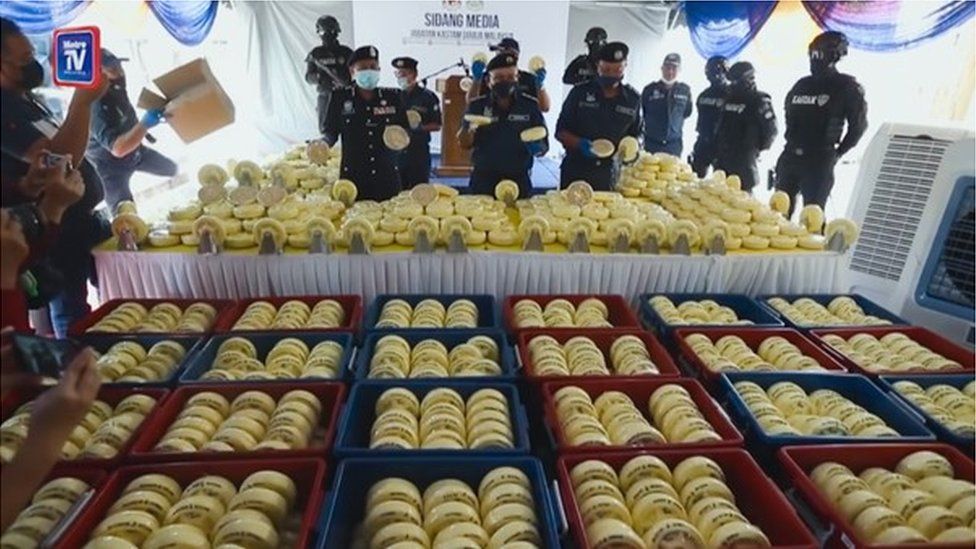
The case was heard in secret, but when our team met with the judge, he informed us that the majority of the evidence came from the monitoring of phone calls between Daqqou and several drug smugglers.
Daqqou claimed during the trial that he was working with the Syrian army's Fourth Division to combat Captagon traffickers and produced an ID card from the division as proof.
Daqqou assured the BBC of his innocence and stated that the court had not discovered any evidence linking him to a Captagon shipment.
The judge told the BBC that despite Daqqou being found guilty of trafficking, there was no proof of Syrian officials' involvement in his Captagon business.
However, during our investigation, we discovered evidence in the 600-page court document that paints a different picture: a number of screenshots of WhatsApp messages that Daqqou sent to a person he referred to as "The Boss.". They had a prized so-called "golden number" because their phone number was primarily made up of the same digit repeated numerous times.
Major General Ghassan Bilal's phone number belonged to him, according to several high-level sources in Syria who spoke with the BBC. We tried calling the number several times without success.
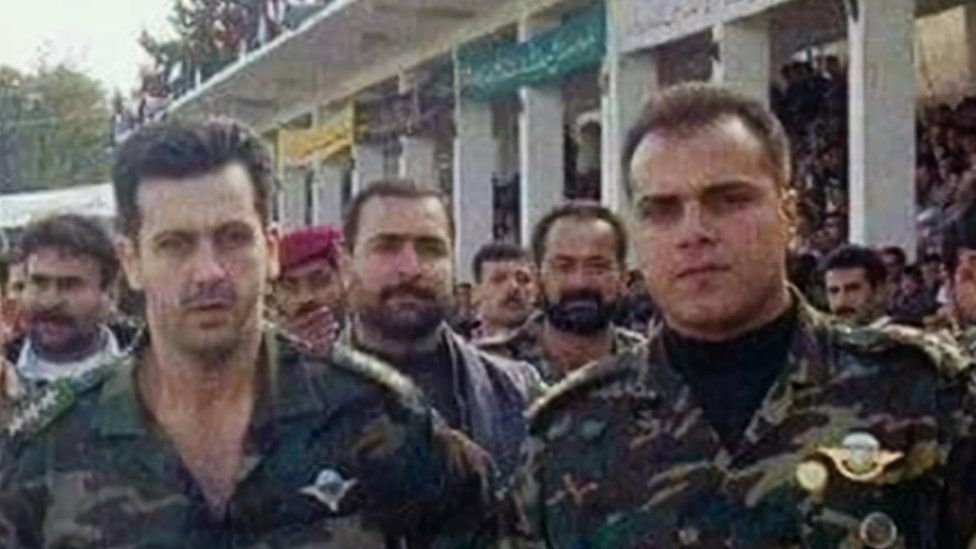
The Fourth Division's powerful Security Bureau is reportedly led by Gen. Bilal, Maher al-Assad's deputy and the division's second-in-command.
The movement of "goods," which we believe to be Captagon, to a Syrian town called Saboora, where the Fourth Division has a sizable base, as well as the renewal of security clearances were topics that Daqqou and The Boss discussed in the WhatsApp messages.
If The Boss is in fact Gen. Bilal, the conversation implies that one of Syria's most senior army officers is involved in the lucrative, illegal Captagon trade. Our attempt to contact Gen. Bilal for comment was unsuccessful. .
Syria was re-accepted into the Arab League in May, and for the first time in more than a decade, President Assad attended a meeting of the regional organization. Additionally, he has been invited to the United Arab Emirates to participate in COP28 in November.
The extent to which the international community will try to put pressure on the regime to stop using Captagon in Syria is still up for debate.
Additional reporting by the OCCRP MENA team and BBC News Arabic Investigations.

